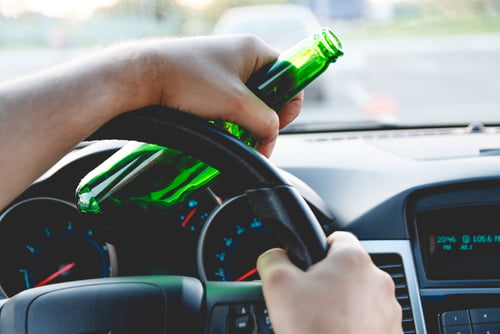
Massachusetts is known as one of the most aggressive states in the country when it comes to penalties associated with Operating Under the Influence (OUI), known as Driving Under the Influence (DUI) in many other states. With the introduction of Melanie’s Law in 2006, Massachusetts now requires that all repeat offenders install an Ignition Interlock Device (IID) in their vehicle for a 2-year period after they have their licenses reinstated following a full suspension. However, if an offender is approved for a Hardship License, they will be required to install an IID in their vehicle for the duration of the provisional license, even if it is their first offense, and this time with the IID will not count towards the required time when the full license is restored.
Take a look at some of these OUI statistics about Boston in particular as they relate to Operating Under the Influence arrests, charges, and convictions. If you have been arrested for OUI in Boston, contact OUI Attorneys today to speak with an aggressive OUI lawyer about your situation. It is important that you act quickly so that you can build a strong defense, meet any required deadlines, and make sure that you are moving in the right direction as soon as possible.
Numbers and Statistics About Boston OUI
.08%
This is the maximum legal Blood Alcohol Concentration allowed for an adult operating a motor vehicle. Beyond this concentration, a driver is in violation of federal law and can be arrested and charged with OUI in Boston.
31,845
This is the number of vehicles that were blocked from ignition in Massachusetts due to the driver registering above .08 on the Ignition Interlock Device in the 10 years between 2006 and 2016.
2 Years
This is the length of time that a repeat offender is required to keep an IID in their vehicle after being convicted of a Boston OUI and have their license reinstated. If you have been granted a Hardship License in the state of Massachusetts, you will be required to install an IID for the duration of this license, and the time will not count towards this two-year requirement.
Lifetime
This is how long the “lookback period” lasts in the state of Massachusetts when considering a past conviction and the penalties that the person charged with is facing. This means that if you were arrested and convicted of OUI 20 years ago in Boston, and are arrested under suspicion of OUI again, you will be charged as a repeat offender. In many states, there are limited lookback periods of 10-12 years, but Massachusetts is very strict.
$200 +$85/month
This is how much it will cost you to install and maintain an Ignition Interlock Device in your vehicle for the amount of time you are required to use it. Whether you are a first offender installing an IID as a term of your hardship license, or if you are a repeat offender fulfilling your 2-year requirement after having your license reinstated, you will need to pay a $200 installation fee and then a subsequent $85/month for the duration of your time with the device.
16 Weeks
This is the length of the Alcohol Education Program that you will be required to attend if you are able to agree to a 24D Disposition after a first offense, instead of a full conviction. This course is a requirement for the 24D Disposition, in addition to a reduced license suspension, probation, and fees. While a 24D Disposition will not result in an OUI conviction on your criminal record, it will be considered as a first offense if you are charged with a second OUI at any time in your life in Massachusetts.
$5,000
This is how much you may end up paying in fines and fees by the end of your first OUI case. This does not account for attorney fees, lost work, or any other financial issues that may arise as a result of your arrest. An OUI is an expensive mistake, but the team at OUI Attorneys is here to help you get out of this as smoothly as possible.
Contact Us Today
It is important that you begin working on your case as soon as possible. We are available today to begin speaking with you about the circumstances of your arrest, the charges you are facing, your criminal history, and anything else specific to your case, as well as to speak with you about our history of successes in situations similar to your own.


